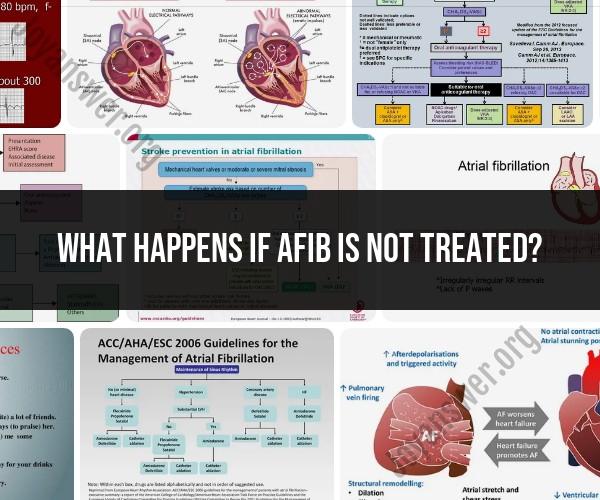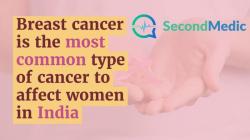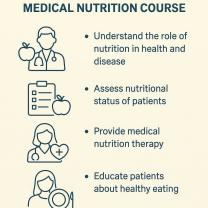What happens if AFIB is not treated?
Untreated atrial fibrillation (AFib) can lead to various serious health complications and consequences. AFib is an irregular and often rapid heart rhythm that can disrupt the normal functioning of the heart. If left untreated, it can result in the following potential consequences:
Stroke: AFib significantly increases the risk of stroke because it can lead to the formation of blood clots in the atria (upper chambers of the heart). If these clots dislodge and travel to the brain, they can cause a stroke, which can result in permanent neurological damage or even be life-threatening.
Heart Failure: Over time, the irregular and rapid heartbeat associated with AFib can weaken the heart muscle, leading to heart failure. Heart failure is a condition in which the heart can't pump blood effectively, causing symptoms such as fatigue, shortness of breath, and fluid retention.
Blood Clots: AFib can increase the risk of blood clots not only in the atria but also in other parts of the circulatory system. These clots can block blood flow to various organs and lead to organ damage or failure.
Chronic Fatigue: The irregular heartbeat in AFib can reduce the heart's ability to pump oxygen-rich blood to the body's tissues, which can result in chronic fatigue and reduced physical endurance.
Reduced Quality of Life: AFib can cause a range of symptoms, including palpitations, chest discomfort, dizziness, and shortness of breath. These symptoms can significantly impact an individual's quality of life, making it challenging to perform everyday activities.
Other Heart Rhythm Disorders: AFib can trigger or worsen other heart rhythm disorders, such as atrial flutter or ventricular arrhythmias, further complicating the heart's function.
Cardiomyopathy: In some cases, untreated AFib can lead to cardiomyopathy, a condition in which the heart muscle becomes stretched, enlarged, and weakened.
Increased Mortality: AFib is associated with an increased risk of mortality, primarily due to the higher likelihood of stroke and heart-related complications.
It's crucial to diagnose and treat AFib promptly to reduce the risk of these complications. Treatment options for AFib may include medications to control heart rhythm and prevent blood clots, lifestyle modifications, electrical cardioversion (to restore a normal heart rhythm), catheter ablation, and in some cases, the implantation of a pacemaker or implantable cardioverter-defibrillator (ICD).
If you or someone you know experiences symptoms of AFib, such as irregular or rapid heartbeat, chest discomfort, or dizziness, it's essential to seek medical attention for proper evaluation and treatment to minimize the potential consequences of untreated AFib.












